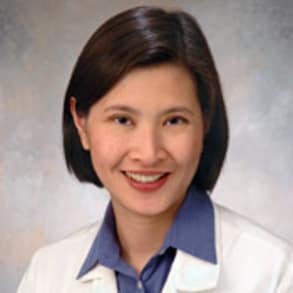Helen S. Te, MD, discusses the future of Non-Alcohol Fatty Liver Disease care.
HELEN TE: Liver disease is becoming more common in the country. I think despite the fact that one of our major problems, which is hepatitis C, is starting to have a really good stronghold for eradication in the future with all the new treatments that are recently discovered-- and are still being discovered that have resulted in significantly higher response rates-- fatty liver disease is going to take over as the problem for patients with liver diseases and for hepatologists to deal with. So in the future I think we will have a plethora of patients with fatty liver diseases, unless we as a country take a measure to change our dietary habits and our activity habits to lower the risk of obesity and lowered the risk of diabetes. In terms of liver transplantation, the field is continuing to evolve. We are looking at trying to individualize immunosuppression for patients to cater to their own body mechanisms, as well as their own underlying disease and other comorbidities and complications that may have occurred after liver transplantation. It's no longer a one-size-fits-all pattern in a post-transplant immunosuppressive care. We are now looking at specifically tailored immunosuppression to each single patient. But the holy grail of liver transplantation, of course, is the ability to remove immunosuppression completely, which has been successful in a few patients but remains a challenge in many other patients. I think that if we can find a test that will allow us to predict the success or failure of withdrawal of immunosuppression, that will again be another major victory for all liver transplant recipients, and in fact also in organ transplants probably will be greatly benefited by that discovery. INTERVIEWER: So what are some of the reasons why referring doctors should consider setting patients to the UC Medicine service? HELEN TE: I think the University of Chicago Medicine stands out from the other medical centers in the fact that it provides an opportunity for the patient to have one-stop shopping. The patients can come here and see one doctor. But in reality, they are getting the opinion of multiple other doctors as we sit in our conferences where we share cases and gather input from various other disciplines that are also involved in the field. The other reason for patients to come here is the fact that we provide individualized care as well. From the level of the physician, down to mid-level providers, to nursing staff, and even our ancillary support staff, we all are geared towards patient care and patient satisfaction. Our patients have a very open channel of communication with the team. And we call it the team, because we work as a team. And once they reach one member of the team, it's essentially as if they're reaching the rest of the team, because we all communicate with each other. I think that makes the University of Chicago stand out from the rest of the other centers, not to mention the fact that, of course, we are usually advanced in terms of innovations in new technology and new treatments that are available here.




